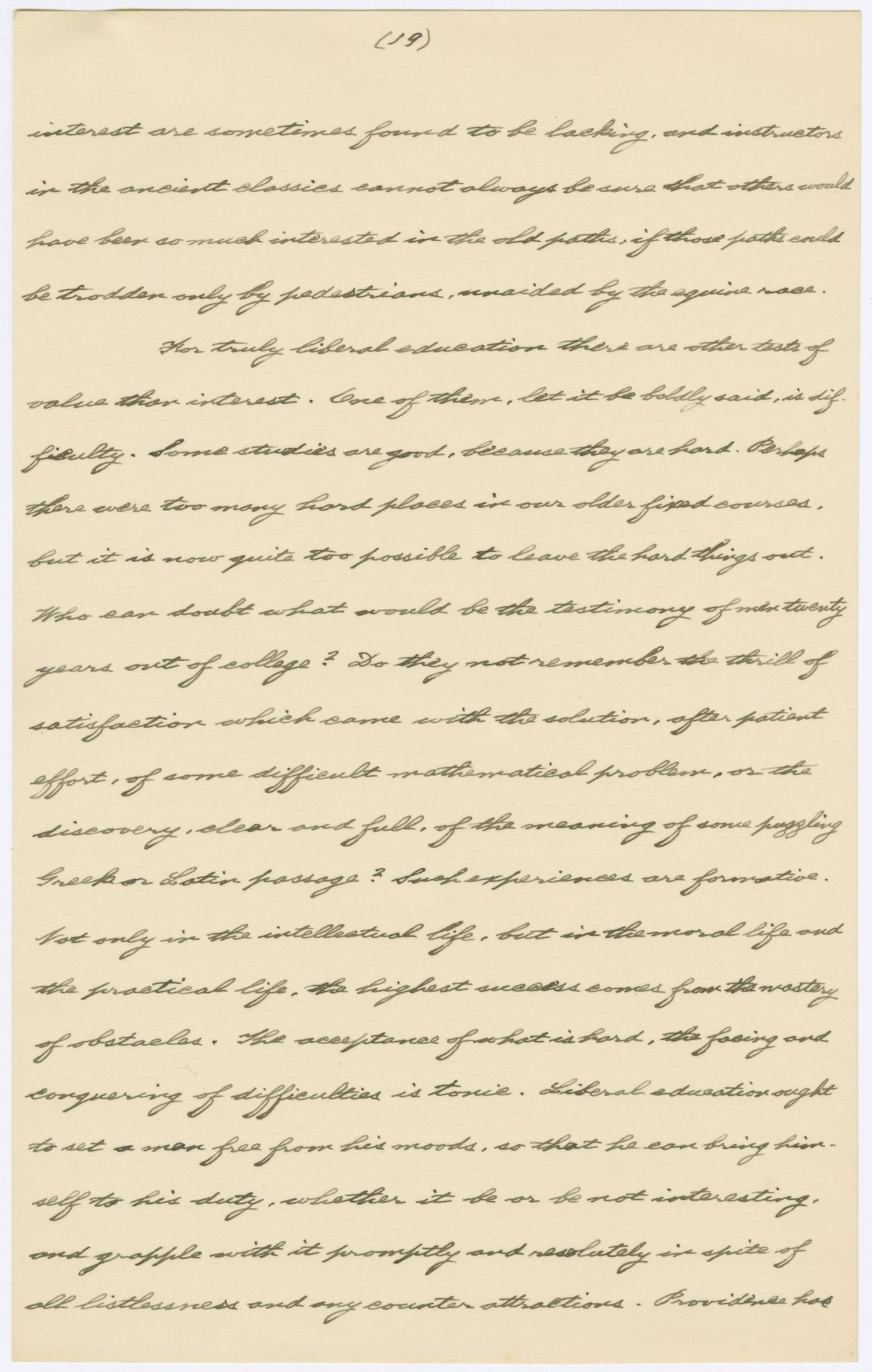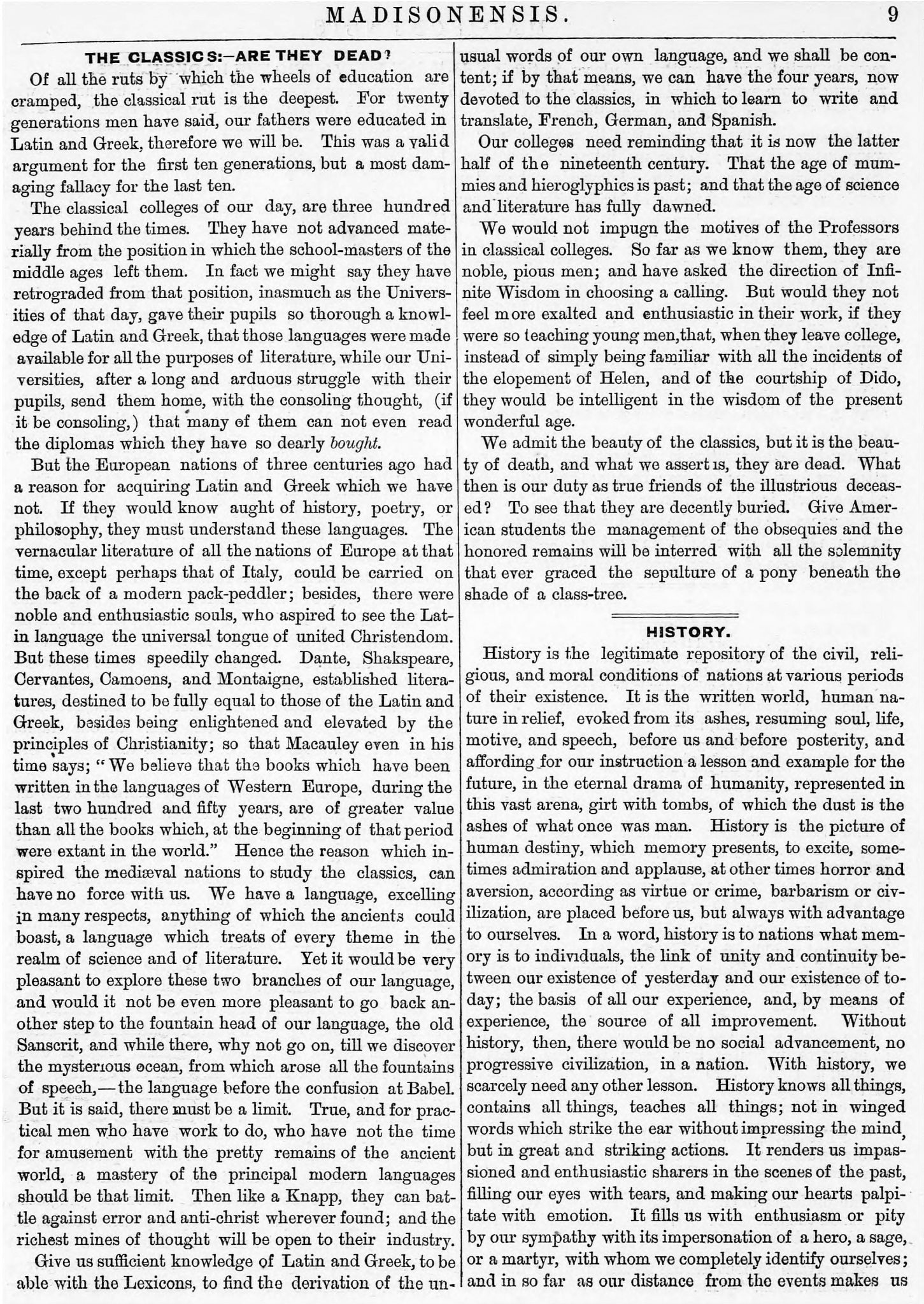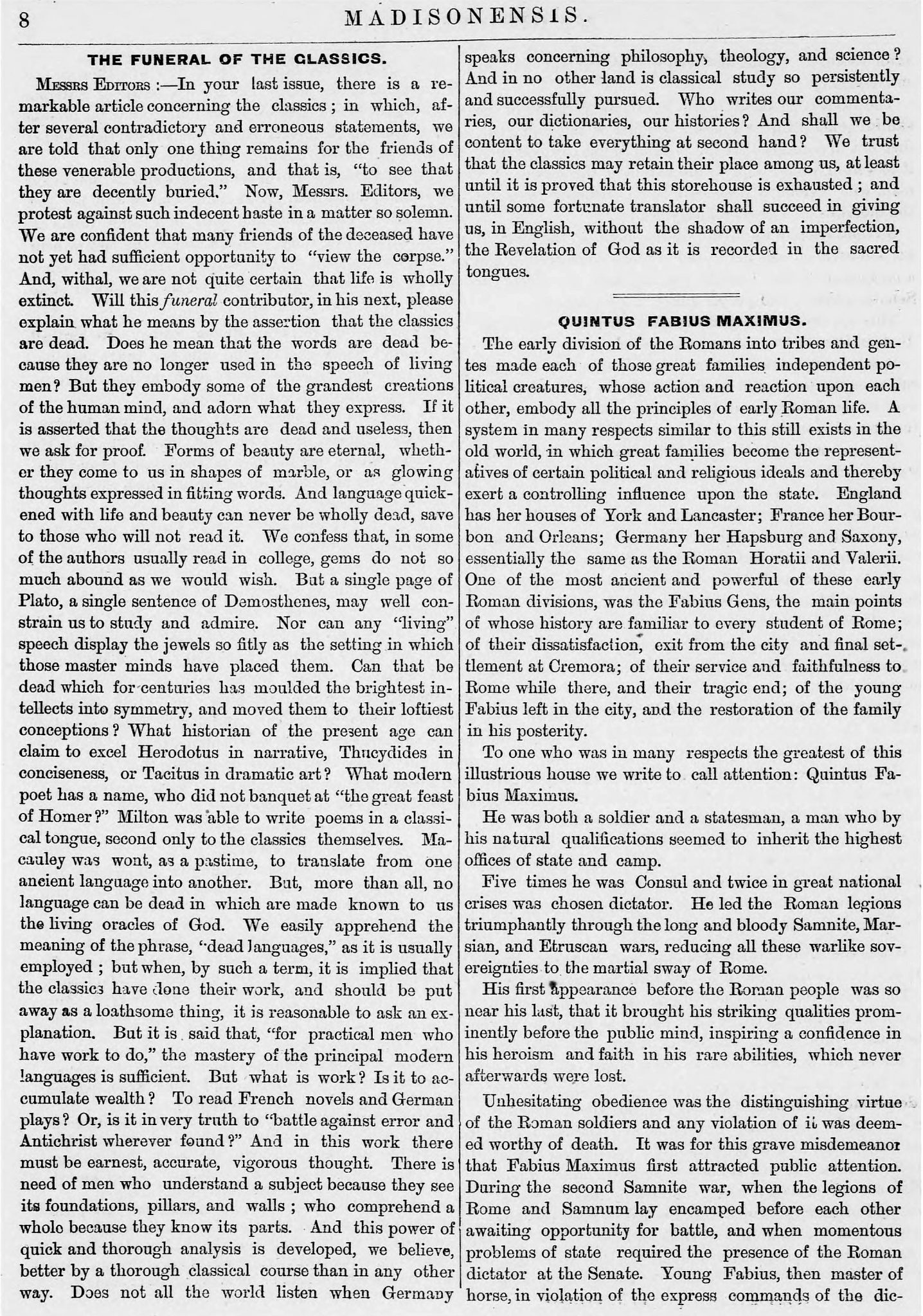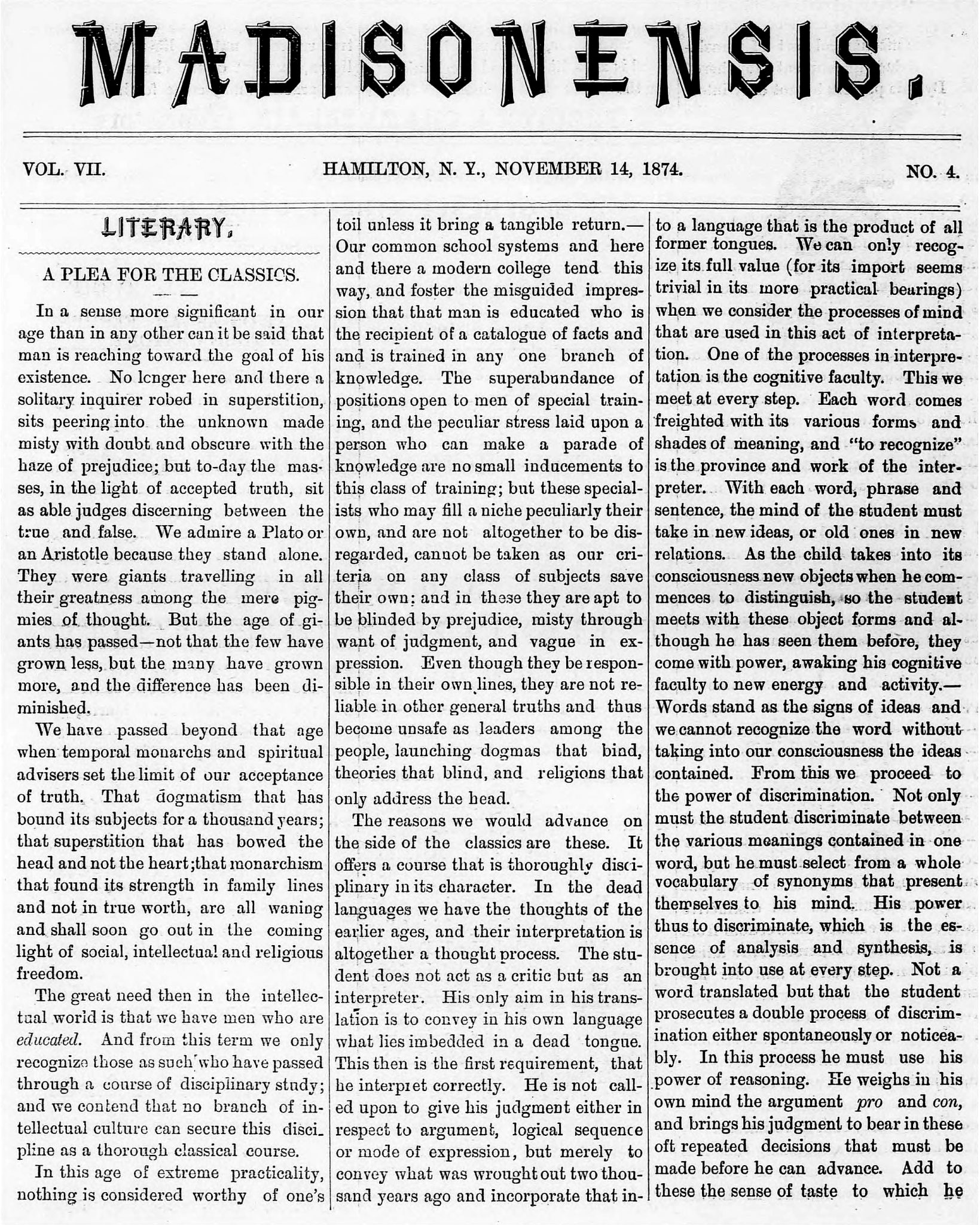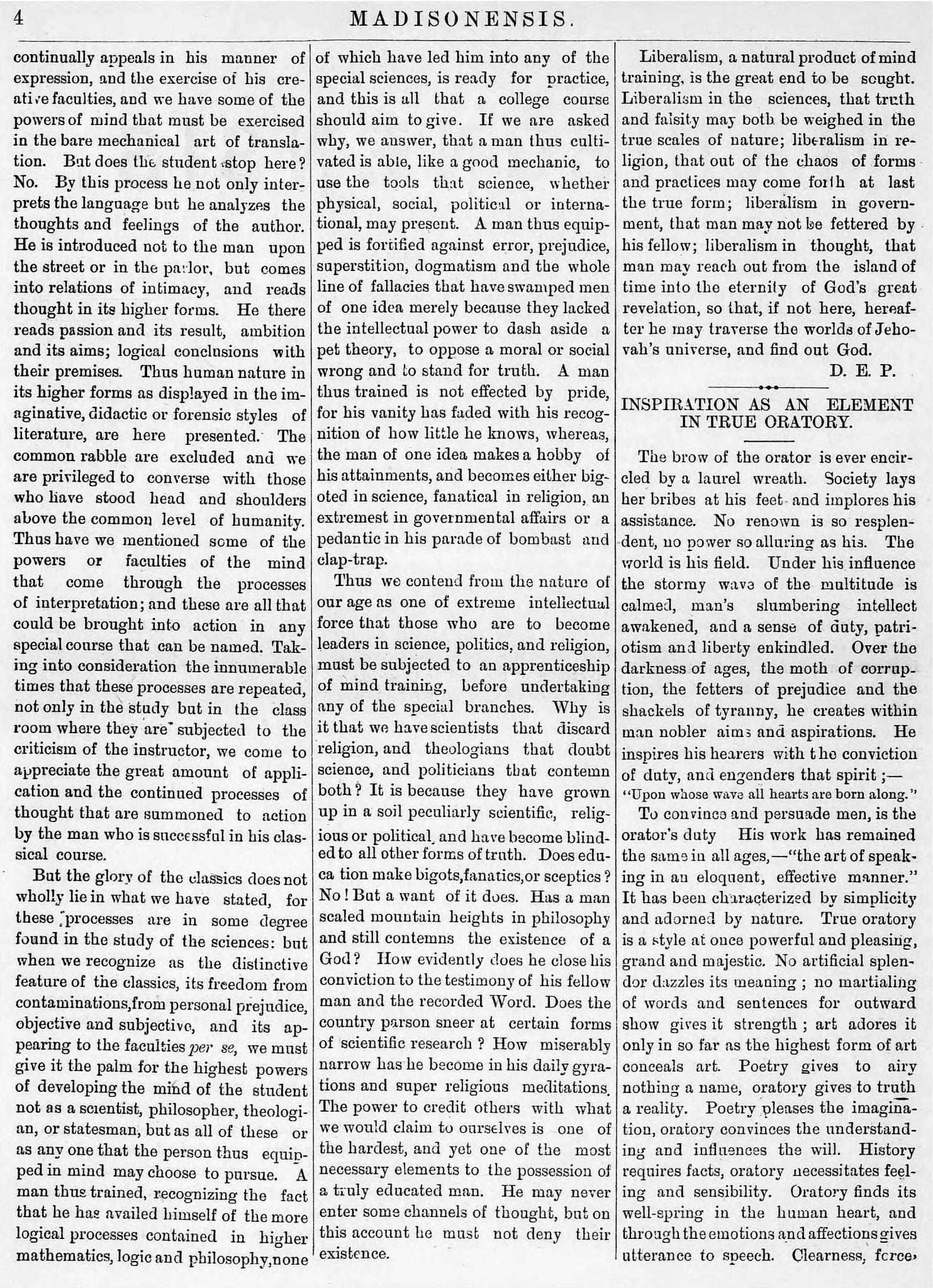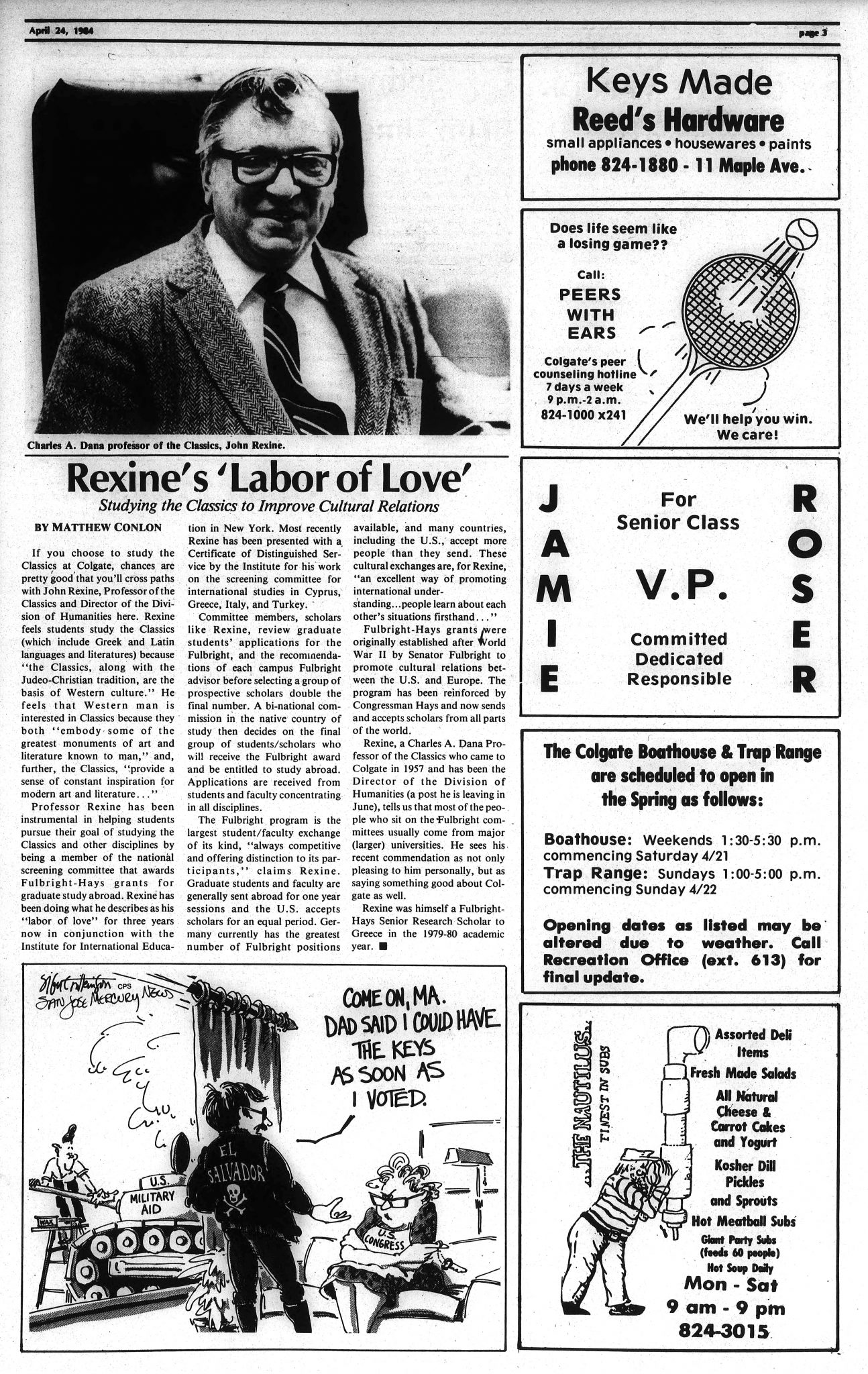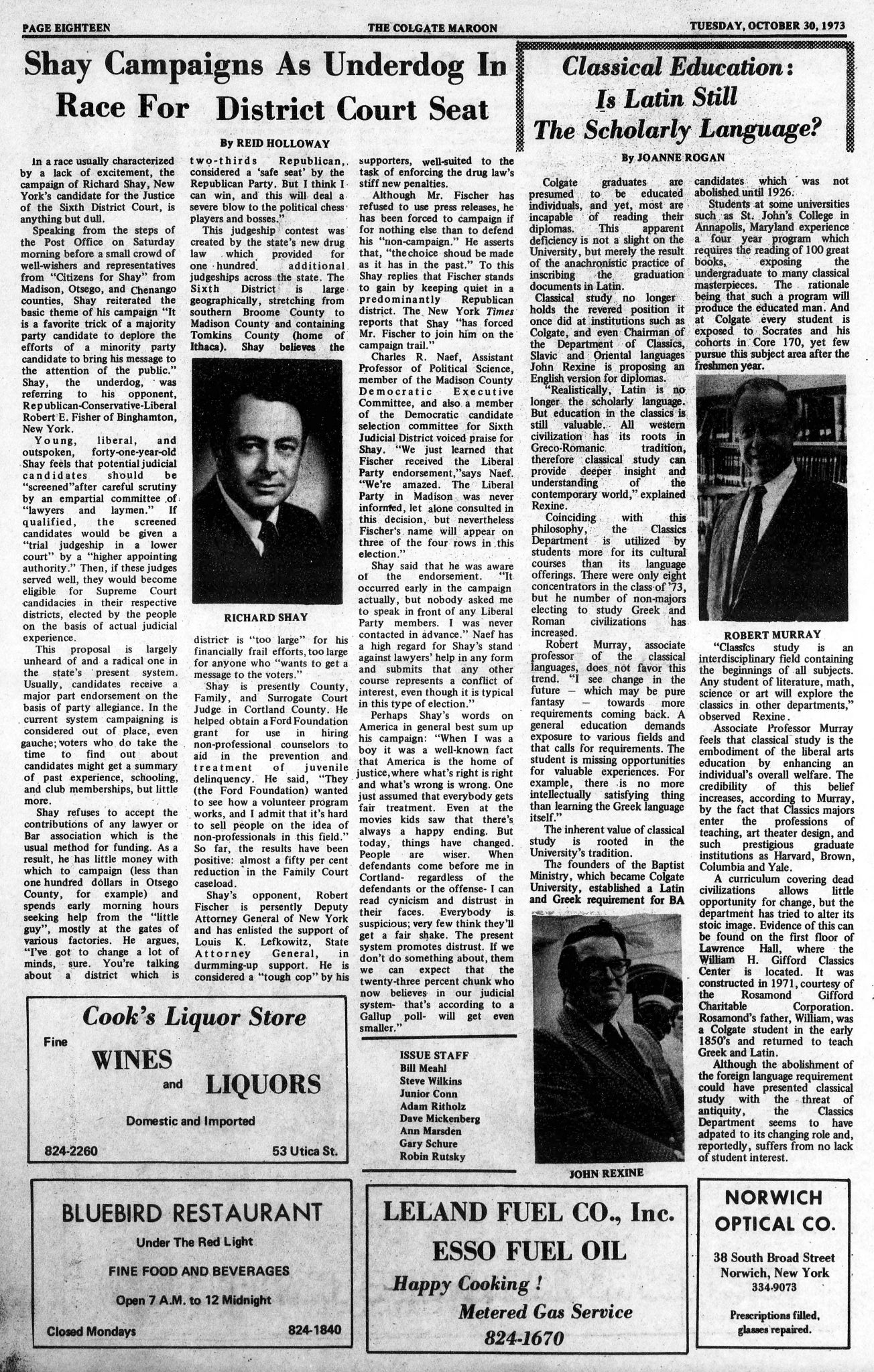Relevance of the Classics
By the late nineteenth century, an increasing interest in the scientific fields caused a series of debates on the role of university education and the utility of teaching the Classics. At Colgate these debates were also spurred by the changing curriculum and trends towards specialization in a single field. These discussions continue today, as some students have called into question CORE 151: Legacies of the Ancient World. These items illustrate some of the arguments students and faculty used in favor of or against pursuing the study of the Classics at Colgate.
Newton Lloyd Andrews' Defense of the Classics
In 1904, Professor N. L. Andrews argues that the Classics are of value for a truly liberal education because they are hard. The mastery of such obstacles are formative for intellectual, moral, and practical life:
"Some studies are good because they are hard . . . Who can doubt what would be the testimony of men twenty years out of college? Do they not remember the thrill of satisfaction which came with the solution, after patient effort, of some difficult mathematical problem, or the discovery, clear and full, of the meaning of some puzzling Greek or Latin passage? Such experiences are formative. Not only in the intellectual life, but in the moral life and the practical life. The highest success comes from the mastery of obstacles. The acceptance of what is hard, the facing and conquering of difficulties is tonic."
President Ebenezer Dodge's Argument for the Classics
In 1886, President Dodge argues for the learning of Greek language and literature, noting that the study of the Classics creates a cultivated and educated man.
In 1872, the editors of the Madisonensis conclude in an article titled "The Classics - Are They Dead?" that the Classics are no longer useful. They say that past scholars relied on ancient literary works written in Greek and Latin, but now such texts are no longer needed and there are other great works of literature that may be studied in English.
In a response to their editorial, a student defends the Classics. He argues that no work can surpass those of ancient classical authors and that no English translation can do adequate justice to a Greek or Latin literary work.
"A Plea for the Classics"
In this Madisonensis article of 1874, a student, D.E.P., argues that, in a new age of intellectualism, the Classics provide the mental training necessary for crafting an educated man.
In 1984, Classics Professor John E. Rexine argues, “The Classics, along with the Judeo-Christian tradition, are the basis of Western Culture.”
In 1973, "Classical Education: Is Latin Still the Scholarly Language?" highlights the tradition of the Classics at Colgate, their use for training the mind, and the popularity of courses about classical cultures.
Core 151 and the Debate over Legacies of the Ancient World
In 2017, Colgate students are required to take four Common Core classes: Communities and Identities, Scientific Perspectives, Challenges of Modernity, and Legacies of the Ancient World. The purpose of these courses is to engage all students in the liberal arts by introducing them to new subjects outside of their intended majors. Legacies of the Ancient World focuses mainly on works by Homer, Plato, Virgil, and other ancient Greek and Latin authors, but incorporates the Bible, the Quran, and other texts as well. Debates have arisen over the relevance and utility of this course for a liberal arts education. Wil Stowers '19 posted an article entitled "Questioning the Common Core" in April of 2017, and Francis Migliore '17 replied in May 2017 with "A Defense of CORE and Classics."
